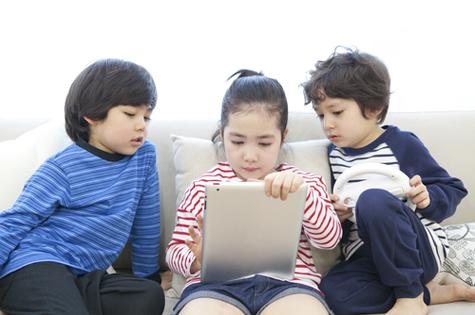If you haven’t done it yourself, you’ve probably seen it done – a parent handing over a tablet or smartphone to a screaming child to help pacify them.
But child psychologists say that is probably not helping children’s emotional development, because they are not learning how to control their emotions.
Researchers at Boston University School of Medicine in the US found that children need to find ways of self-regulating their feelings rather than masking them with distracting activities or games.
"Mobile devices are everywhere and children are using them more frequently at young ages. The impact these mobile devices are having on the development and behaviour of children is still relatively unknown,” according to clinical instructor in Developmental & Beahvioural Paediatrics at Boston University, Dr Jenny Radesky.
"It has been well-studied that increased television time decreases a child's development of language and social skills. Mobile media use similarly replaces the amount of time spent engaging in direct human-human interaction.
"If these devices become the predominant method to calm and distract young children, will they be able to develop their own internal mechanisms of self-regulation?"
Dr Radesky said that earlier studies found that interactive media, such as electronic books and learn-to-read applications can be useful in teaching vocabulary and reading comprehension, but only in children preschool-age or older.
The new research found that, while mobile devices used by children can provide an educational benefit, if they are used to distract youngsters in day-to-day situations or in times of poor behaviour, it may be detrimental to the social and emotional development of the child.
"Heavy device use during young childhood could interfere with development of empathy, social and problem solving skills that are typically obtained by exploring, unstructured play and interacting with friends.
"These devices also may replace the hands-on activities important for the development of sensorimotor and visual-motor skills, which are important for the learning and application of maths and science."
Dr Radesky recommends that playing with building blocks is more likely to help a toddler with early maths skills than electronic gadgets.
The study also showed that tablets, eBooks and apps are wasted on children under 30 months and are most effective when used with parents. Infants and toddlers will still learn best through hands-on, face to face experiences with adults, the authors concluded.
"At this time, there are more questions than answers when it comes to mobile media," said Dr Radesky.
She recommends that parents try applications before considering allowing a child to use them.



















__small.png)










